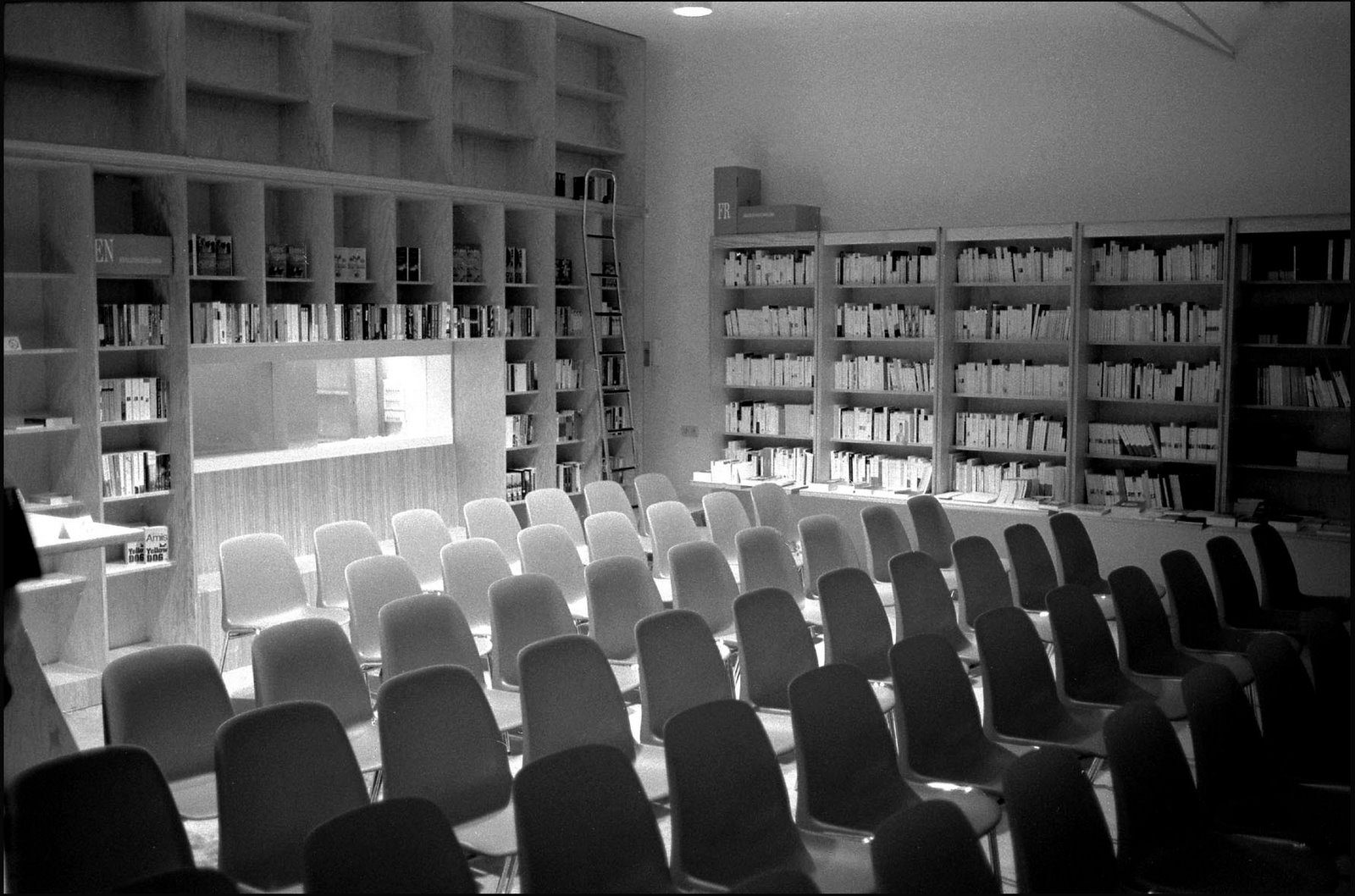by Jack McMartin, reporting from Villa Hellebosch, Vollezele
The tour bus carrying seven internationally renowned writers and four Passa Porta staffers rolls to a stop at the gates of Villa Hellebosch in Vollezele. A summerlike sun warms shoulders clad for late winter, shrugging. A thatched roof and gabled windows can just be gleamed at the end of the tree-lined drive. It seems we’ve arrived at a writers’ paradise (or a scene out of an Agatha Christie novel?) where the sun is always shining and time stands still. Here, “The Time of the Author” begins.
Monday, 10 March. Day One of the three-day writers’ retreat. Céline Curiol (France), Joke Hermsen (Netherlands), Iman Humaydan (Lebanon), Jens Christian Grøndahl (Denmark), Anne Provoost (Belgium), Goce Smilevski (Macedonia) and Juan Gabriel Vásquez (Columbia) settle in for conversation and reflection on the gathering’s focus: the relationship between the literary imagination and current affairs, along with readings from their work.
New(s)
Wading us into our allotted time, moderator Ortwin De Graef invites each writer to introduce him or herself, say why they have come and what they hope to get out of the retreat. It does not take long for lines of thought to emerge, overlap, find resonance.
Jens Christian insists on the need to find a language for writing in the here and now. “What does it mean to be there, right now, aesthetically and ethically?”
Juan Gabriel, a novelist and columnist, calls out the tension between the role of the columnist, who writes of the present as someone who
knows and tries to convince, and the role of the novelist on the other, who writes of the past as someone who
does not know.
Céline Curiol, who spent ten years as a journalist, asks what is news? Is news new? How should novelists use it? She points out that news is becoming more and more fictionalized while novels are becoming more and more ‘realistic’.
Kairos
Joke Hermsen, a writer and philosopher, is skeptical of time and is interested in alternative models and ways of thinking about it. Her new book explores
Kairos, whose time is that of
the right or opportune moment. She senses shimmers of this time in a world dominated by the linear, ever scarce and ever-accelerating time of Chronos.
Anne Provoost says that every novelist will sooner or later write about the past. In her historic novels, she looks for where we “missed the bend”, that is, where history had the chance to create something new but fell back on old habits instead. Knowing it does not exist, she fixates her gaze on a utopic future and proclaims the path leading to it literature. “This offers us the possibility of imagining the unimaginable.”
Goce Smilevski’s historiographical writing (e.g.
Freud’s Sister) is concerned with remembering characters from history that were left behind, in the shadows of its giants. He, like Joke, senses a shift in the last few decades. “We have the resurrection of Kairos that Joke mentioned – the time of the time is coming again."
Unease
“I have a traumatic relationship with time,” says Iman. “I see time as a masculine thing because all these traumatic events in my life have happened by men.” The time of women is outside history for Iman. Writing about women has enabled her to write in the present, but a distrust of reality and time remains. “I am here to come nearer to a peaceful relationship with time,” she says.
The
tour de table done, Ortwin sums up with characteristic frankness: “None of you seem to be content with time. I’m hearing a deeply felt unease with time. My questions to you: What is a happy time? Where is love? Where is God?”
Plenty of time to ponder these and more questions in the days to come.















